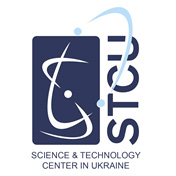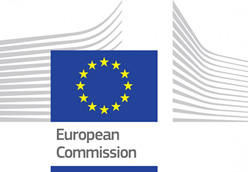|
|
Targeted Initiative CBRN Export Control on Dual-Use Materials and Intangible Technologies in GUAM CountriesSeminar on the Challenges of the Scientific and Technological Evolution for the Export Control Systems |
 |
| 15-16 October, Tbilisi, Georgia |
On October 15-16 took place in Tbilisi (Georgia) the Seminar on the Challenges of the Scientific and Technological Evolution for the Export Control Systems. This is the second seminar of the Targeted Initiative CBRN Export Control on Dual-Use Materials and Intangible Technologies in GUAM Countries.
The over 80 participants from Georgia, Ukraine, Azerbaijan, and Moldova listened to the updates of the implementation of the TI and the progress made on the handbooks and master course.
The centerpiece of the seminar was a tabletop exercise (TTX) designed to have participants reflect on the types of legislative and regulatory tools necessary to prevent the illicit transfer of CBRN-relevant dual-use technologies or mitigate the consequences of a violation. Situated on a hypothetical continent, one country was accused of constructing a chemical weapons factory despite being a party to the Chemical Weapons Convention. Participants were divided in four break groups representing two other countries on the continent: the first one was a supplier of dual-use technologies to the accused country; the second represented a transit country. Each breakout group functioned as an advisory body to the country. Spread over two half-days, participants were presented with an evolving scenario challenging them to come up with short-term solutions to address the unfolding crisis or to identify gaps in the national regulatory system and its implementation and suggest solutions.
The participants, with professional backgrounds in relevant government offices, academia, sciences or industry, came to appreciate their responsibilities and the complexities they would face both on the national level, as well as on the level of their professional sector, institution or as an individual professional or scientist. The TTX ended with an overview of issue areas and types of international assistance available to address questions on the control of dual-use technology transfers.
Then we reorganized the participants in working groups according to their background: research, academia, and industry.
The working group for the research community had a lively and, at times, emotional discussion. One of the themes discussed was a greater need for flexibility and responsiveness to new and emerging technological challenges. Other topics included the apparent or perceived lack of societal value ascribed to the research community and funding issues. A challenge that is beyond our remit, but one that has potential implications for regulatory compliance and security policy. An obstacle to discussion was a general unfamiliarity with the subject area and dual-use controls. In the shortness of time the group failed to identify ways for the research community to engage meaningfully with political processes or to elaborate on improvements to existing ways to engage.
With time and a clearer formulation of the problem, more outreach to the community, the abundant energy we found in the room may be harnessed to find practical ways forward to utilise the expertise of the research community to greater effect in the formulation of responsive and flexible controls.
The working group for academia built on the outcomes of the TTX. In particular, educational strategies were explored to enhance appreciation of the proliferation risks associated with certain activities in academic institutions. These included the establishment of formal courses on CBRN weapons and the underlying technologies, proliferation processes, etc. at universities and professional schools. Other elements under consideration were the establishment of ethical and professional codes and advance awareness-raising strategies. The working group formulated several concrete proposals for future activities for consideration by the STCU.
The Industry WG convened in order to discuss three main issues: 1.The progress of handbooks’ projects and follow-up activities 2.Brainstorming for future activities under the STCU TI 3.Feedback on TTX. C. Charatsis introduced the topics by highlighting that an establishing a partnership between industry and government entails responsibilities and benefits for both sides. He also invited the participants to think of additional projects that could be launched for strengthening/ sustaining the outcomes of the undertaken projects in the future. M. Espona also asked from the audience to come up with concrete proposals for future projects. The participants who were made up of industry, industry associations and government representatives expressed their satisfaction with the IT objectives and the specific handbooks which can be beneficial to their respective work. All four handbooks and linked projects for Georgia, Moldova, Ukraine, and Azerbaijan have been launched and are on track. The discussion touched upon ways to maintain the handbooks as living documents/databases and publicize their existence among various concerned audiences. In that view, it was agreed that a useful next step upon the completion of the handbooks could be their presentation in the context of annual conferences to be organized by the Chambers of Commerce of the different countries. Indeed, the Chambers of Commerce of Ukraine and Moldova already agreed to go along with this idea. All the participants expressed their appreciation of the TTX but there was little time to enter into a more detailed discussion.
Finally, the seminar was a very productive one and we agree on continue working on the already ongoing projects and start new master courses in Georgia and Moldova in 2019. The next meetings will be for the research community and the industry in dates and places to be confirmed.
Material For Second Workshop:
 All Materials Archive_October 15-16.zip
All Materials Archive_October 15-16.zip All Photos. Archive file
All Photos. Archive file 20181004 STCU Tbilisi TTX export controls v1(2).pdf
20181004 STCU Tbilisi TTX export controls v1(2).pdf  9603-first month report Georgia.pdf
9603-first month report Georgia.pdf  Az Presentation at October 15-16 event of Export Control in Tbilisi.pdf
Az Presentation at October 15-16 event of Export Control in Tbilisi.pdf  Conclusions Tbilisi 2018.pdf
Conclusions Tbilisi 2018.pdf ilchmann.pdf
ilchmann.pdf  industry handbook.pdf
industry handbook.pdf  Presentation Nataliya Matsko.pdf
Presentation Nataliya Matsko.pdf  STCU Tbilisi Moldovan presentation October 2018.pdf
STCU Tbilisi Moldovan presentation October 2018.pdf  Tbilisi Egor Kartusov.pdf
Tbilisi Egor Kartusov.pdf  Tbilisi Quentin Michel.pdf
Tbilisi Quentin Michel.pdf  WG Industry.pdf
WG Industry.pdf
